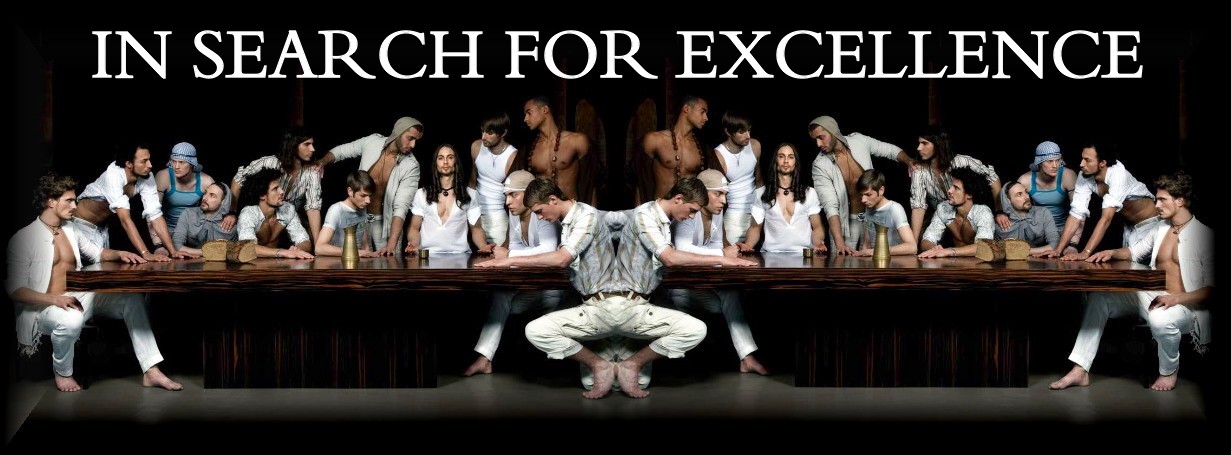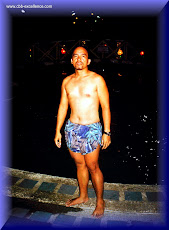 Why Our Better is not the Best
Why Our Better is not the Best“It is our pleasure to serve you.” This is a common slogan we often see on some business establishments. They try to give their best service possible in order to attract customers. Of course, it is their pleasure to serve the people since the customers will pay them in exchange of the service. However, their effort to give the best service always comes out better only and not the best. This is also true to many of us. Like the business establishments, we try to help others but expect something in return. The true essence of service is not present in our work.
 The true essence of service is to give the “best” that one could give so that everyone will benefit from the fruit of ones labor without expecting something in return. Despite the fact that we give something for others, if we do not do it for charity, then it is never the best that we could give. The best in our work only comes out when we do things for others and when we do it selflessly. On the other hand, when we try to help others and try to do our best, but expect something in return, that deed cannot be regarded as the best but rather only better. Our best only comes out when we do things in the essence of service. We can never do the best in our work unless we learn to do things selflessly.
The true essence of service is to give the “best” that one could give so that everyone will benefit from the fruit of ones labor without expecting something in return. Despite the fact that we give something for others, if we do not do it for charity, then it is never the best that we could give. The best in our work only comes out when we do things for others and when we do it selflessly. On the other hand, when we try to help others and try to do our best, but expect something in return, that deed cannot be regarded as the best but rather only better. Our best only comes out when we do things in the essence of service. We can never do the best in our work unless we learn to do things selflessly.Mediocrity is one of the reasons why we cannot do our best. Mediocrity in our work means we do our work but does it with a “just enough-pwede na ‘yan” mentality in order to pass a certain standard. If we will have such mentality then we tend to do things which are just enough for ourselves, disabling us to serve others. We can never serve others if we are doing things with a sense of mediocrity for a mediocre act is just enough for ourselves. Mediocrity can never benefit others but rather harm them. If our best can only be done when we serve, then an act of mediocrity hinders us from doing our best for it loses the essence of service. An act that does not benefit and help others can never be called our best.
Egotism is another hindrance for us to do our best. Egotism is to exalt one’s self or to think that
 one is of greater importance than other people. An egotist can never serve others unless he learns to humble down himself. He can never serve others for he looks down on other people and never reaches out to them. A person who exalts himself is full of pride and does not cherish charity in his heart. A person who does not know how to serve and exalts himself can never do his best, for serving others is doing our best. Thus, we can never do best in our work unless we learn to humble down ourselves.
one is of greater importance than other people. An egotist can never serve others unless he learns to humble down himself. He can never serve others for he looks down on other people and never reaches out to them. A person who exalts himself is full of pride and does not cherish charity in his heart. A person who does not know how to serve and exalts himself can never do his best, for serving others is doing our best. Thus, we can never do best in our work unless we learn to humble down ourselves.Reservation is the last reason why we cannot do our best. Reservations are our blind spots – things about us only others know. We cannot see these attitudes in us because the reality that we possess them hurts us, and when others try to confront us about such attitudes, we try to be blind about the reality because it hurts us. Reservations separate us from the people around us. It separates us from the people who confront us for we cannot accept the truth and we do not want to change. We cannot serve other people when we separate ourselves from them and when we separate ourselves from the truth. Unless we accept the truth and we see our blind spots, we cannot serve the people around us. Hence, reservations hinder us from serving others and hinder us from doing our best.
 Jesus Christ in the Bible is a great model of a man who does His best in His work. He healed the sick, fed the hungry crowd and made many more miracles; but he never asked something in return. He lived a life of service and overcame mediocrity for He has always done His every work with compassion. He has never been an egotist for He loves us all and He always humbled down Himself. He never also had any reservations for he accepted His fate and consequently saved us. Jesus was a man of great service whom we should follow. We should make Jesus Christ, therefore, our model in order to overcome our mediocrity, egotism and reservations to strive for the best in every thing we do.
Jesus Christ in the Bible is a great model of a man who does His best in His work. He healed the sick, fed the hungry crowd and made many more miracles; but he never asked something in return. He lived a life of service and overcame mediocrity for He has always done His every work with compassion. He has never been an egotist for He loves us all and He always humbled down Himself. He never also had any reservations for he accepted His fate and consequently saved us. Jesus was a man of great service whom we should follow. We should make Jesus Christ, therefore, our model in order to overcome our mediocrity, egotism and reservations to strive for the best in every thing we do.The author of this essay, Jeff F., is finishing his degree in computer engineering at MIT. The impassioned guy in picture is Dick T. and his infamous Mark Anthony's speech. Both are my English students who graduated last March 2008.



























No comments:
Post a Comment